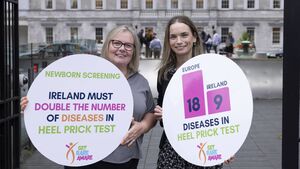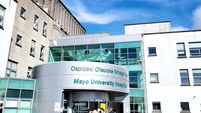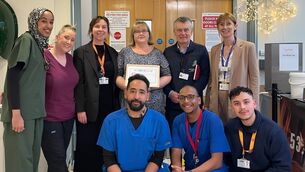Castlebar woman on newborn screening mission

Vicky McGrath, CEO, Rare Diseases Ireland and Dympna Mulroy, from Castlebar, of Muscular Dystrophy Ireland, who briefed Oireachtas members on Ireland's shortcomings at screening newborn babies. Picture: Shane O’Neill, Coalesce
Mayo advocate Dympna Mulroy from Muscular Dystrophy Ireland joined Rare Diseases Ireland at Leinster House to warn Oireachtas members that the number of diseases screened for using newborn bloodspot screening in Ireland, also known as the ‘heel prick test’, must be doubled from the current nine to the European average of 18.
The heel prick test is delivered by the HSE National Newborn Bloodspot Screening Programme (NNBSP), and involves taking a small sample of blood from a newborn baby’s heel between 72 and 120 hours after birth for the early identification of serious medical conditions and rare diseases.
NBS currently screens for nine rare but serious diseases. Screening enables early identification and treatment of these conditions, significantly improving health outcomes for affected infants. Each year, approximately 120 babies are diagnosed with one of these nine diseases through the NNBSP.
Castlebar local Ms Mulroy joined RDI to call for the expansion of the NBS at a briefing event in Government Buildings for TDs, Senators and Government officials as part of its current Get Rare Aware campaign, which is highlighting how Ireland screens newborn babies for fewer diseases than 75 per cent of European countries.





